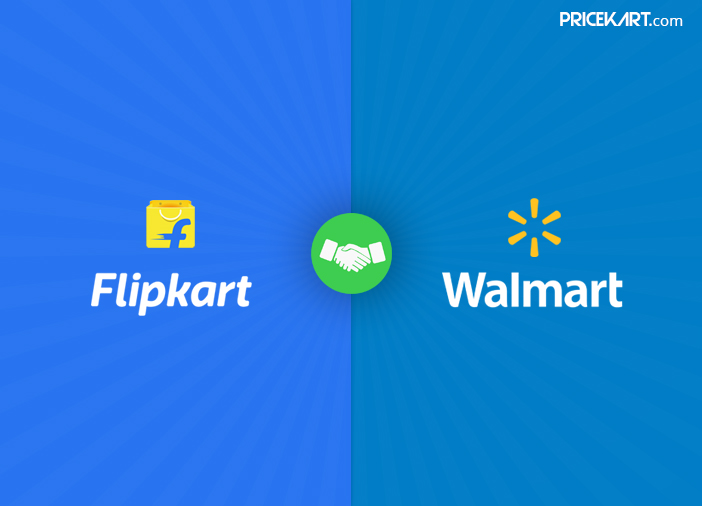Walmart— the world’s largest retailer— has recently acquired the leading Indian e-commerce company, Flipkart for a whopping $16 billion with a 77% stake. After this deal, Walmart and Flipkart will continue to be two separate brands. The Flipkart-Walmart deal is considered as the world’s largest e-commerce deal. With this acquisition, the US retail giant, Walmart will go one-on-one with Amazon in India. In the US market, Amazon and Walmart are the biggest rivals in the retail segment.
While it’s Walmart’s biggest acquisition deal ever, it is conversely the most successful exits done by any Indian startup as of now. In the middle of the Flipkart-Walmart deal, the Indian business community and the general public have been criticising this deal for its good or bad effects on the Indian ecosystem.
A brief background of Flipkart Journey
Flipkart is a Bengaluru-based private company that was founded back in 2007 by two young entrepreneurs– Sachin Bansal and Binny Bansal. The biggest advantage the homegrown e-tailer had in its early phase that it was the first major e-commerce company in India and it managed to stay ahead in the industry before the emergence of Amazon and other competitors in India.
You may like: Mega Summer Sales to Hit this May: Amazon & Flipkart All Set to Go
Presently, the company has $7.5 billion annual GMV, ~30,000 employees, ~54 million active customers and $2.3 billion of annual turnover. Furthermore, it was the first website to build trust with many Indians consumers to start ordering products online (smartphones, books, clothes, or gifting items for loved ones).
The concept of paying ‘cash on delivery’ for making the purchase was introduced by the company as well. This concept came into reality as many Indian consumers weren’t comfortable with digital payment options.
What Concerns Flipkart-Walmart deal have raised
The Foreign Direct Investment (FDI) in multi-brand physical retail is restricted in India. So, by taking over an online retail company in India, there are concerns that Walmart is trying to bypass the Indian FDI laws. As published in a report by Forbes, a renowned advocate for small businesses in India, Confederation of All India Traders (CAIT), has raised a question in the deal for the government’s “immediate intervention” for the concern related to greedy pricing practices and possibilities for malpractice.
Separately, All India Online Vendors Association (AIOVA), has also raised concerns over the deal. AIOVA is the association which has thousands of vendors on Flipkart. The concern is that Walmart will overlay its own labels in the country. Apart from these organisations, many business leaders have expressed their opinion on the Flipkart-Walmart deal.
Certainly, the acquisition of Flipkart is a part of Walmart’s strategic planning to kill two birds with one stone (Flipkart and Amazon India). With the acquisition of India’s leading e-commerce player, the industry will be now dominated by two foreign companies—Amazon and Walmart.
While this could be the beginning of e-commerce war in the Indian space, it is certainly the exit of Indian startup from the battle.
